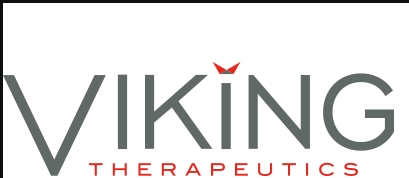VKTX Stock Tumbles Over 30% as High Discontinuation Rate in Oral Weight-Loss Drug Treatment
Viking Therapeutics (VKTX) shares dropped more than 30% after the Phase 2 clinical trial of its oral weight-loss drug experienced a high dropout rate, despite achieving weight loss percentages similar

Viking Therapeutics (VKTX) shares dropped more than 30% after the Phase 2 clinical trial of its oral weight-loss drug experienced a high dropout rate, despite achieving weight loss percentages similar to Eli Lilly’s competing candidate.
The company announced top-line results from its Phase 2 VENTURE-Oral trial evaluating VK2735, an oral dual agonist of GLP-1 and GIP receptors. The study met its primary and secondary endpoints, with patients receiving VK2735 achieving statistically significant weight reductions of up to 12.2% from baseline after 13 weeks of daily dosing, compared with 10.9% for placebo-adjusted results. The drug also demonstrated strong efficacy in terms of achieving ≥5% and ≥10% body weight loss, with up to 97% and 80% of participants reaching those thresholds, respectively.
However, safety and tolerability emerged as a concern. Overall treatment discontinuation was 28% for VK2735 patients, compared with 18% in the placebo arm. Roughly 20% of patients on VK2735 discontinued due to adverse events, primarily gastrointestinal issues such as nausea and vomiting. Although most side effects were classified as mild or moderate and tended to decline over time, the dropout rate raised red flags for investors.
The results contrast with Eli Lilly’s Phase 3 ATTAIN-1 trial for orforglipron, its oral GLP-1 receptor agonist, which reported average weight loss of 12.4% after 72 weeks with a more favorable discontinuation profile. For orforglipron, treatment-related dropout rates were between 5% and 10% depending on the dose, while overall discontinuation rates were broadly in line with placebo.
The comparison highlights a key competitive challenge for Viking: while VK2735 demonstrated rapid and significant weight loss in just 13 weeks, its tolerability profile lags behind Eli Lilly’s candidate, which could limit adoption despite the efficacy similarity. Investors responded swiftly, sending Viking shares sharply lower on concerns that the drug’s gastrointestinal side effects and higher discontinuation rates could undermine its commercial potential in a highly competitive weight-loss drug market.
Mizuho analyst Jared Holz highlighted VK2735 disadvantages compared to Eli Lilly’s offerings: "Data look inferior to LLY on almost all metrics and the thing to consider here is that patients discontinued at such a high rate over 13-weeks vs. LLY in the mid 20% range --- but over 72-weeks; A much longer trial, and therefor LLY looks far better head-to-head. This probably shutters hope for VKTX a bigtime player in the oral obesity market over the near to medium term."
Disclaimer: The views in this article are from the original Creator and do not represent the views or position of Hawk Insight. The content of the article is for reference, communication and learning only, and does not constitute investment advice. If it involves copyright issues, please contact us for deletion.